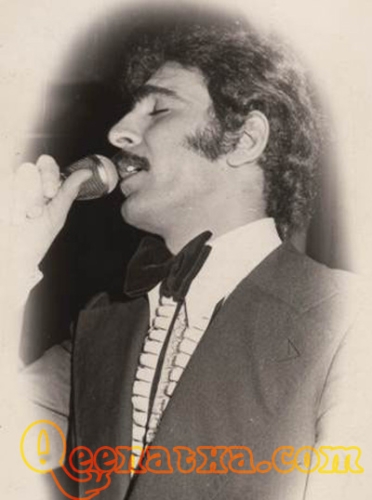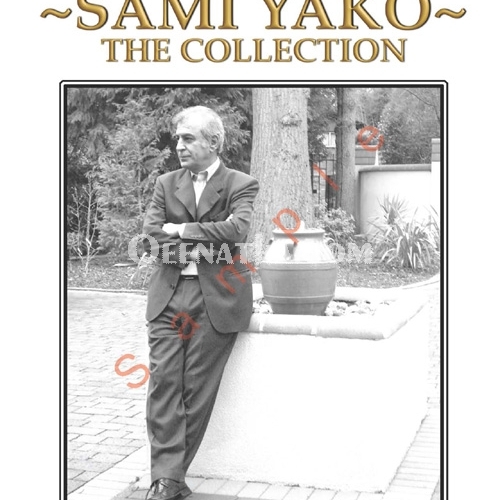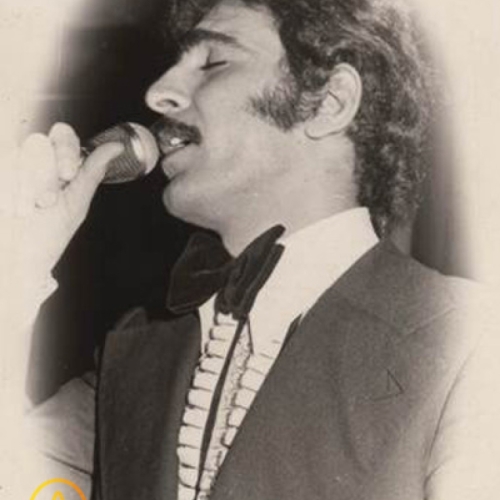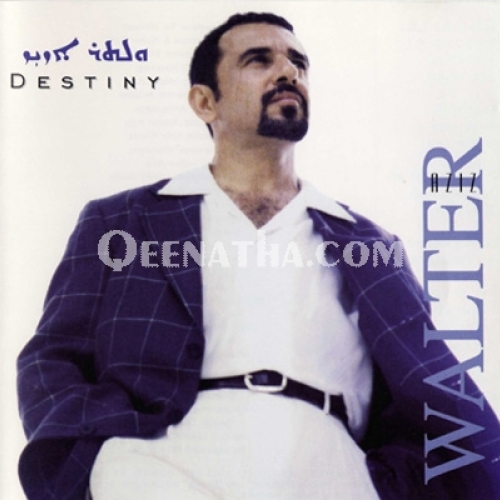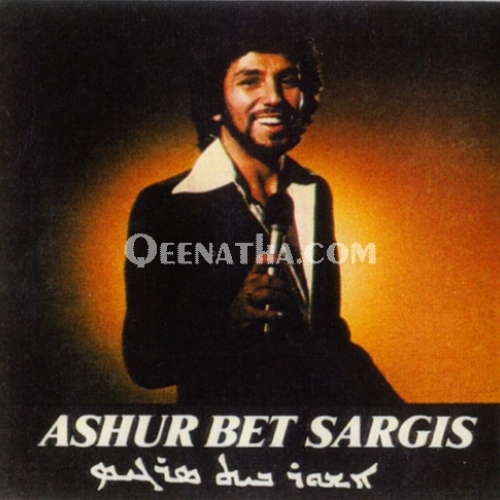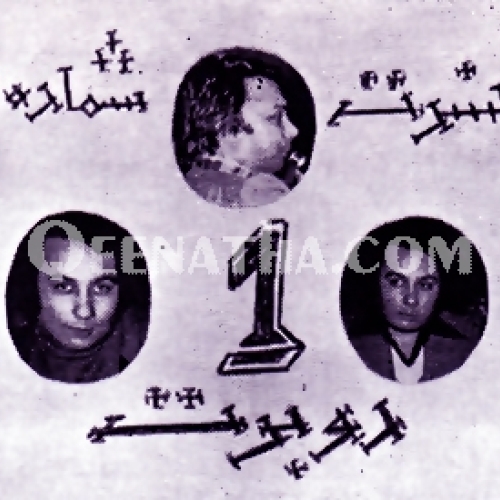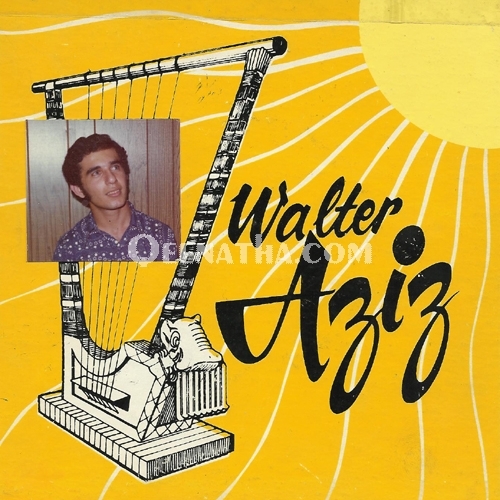Sami Yako
Details
- Artist Type
- Singer
- Biography
-
Sami Shamouel (popularly known as Sami Yako) is an Assyrian playwright, director and actor. He was born on Christmas day in 1948 near Kirkuk, a city north of Baghdad. He studied acting and drama production at the Baghdad Institute of Fine Arts, where he graduated during the 1969/1970 academic year.
During 1971-1978, he was employed as a producer/ presenter at Sawt al-Jamahir ("Voice of the Masses") radio station in Baghdad, and worked at the various departments of the station including drama, current affairs, children programs and cultural programs. During this period, he was sent to Germany to do a training course in program-production, and to Morocco, Algeria and Mauritania to cover cultural, literal and artistic events. This was also the period when he first started acting and producing plays, both in the Arabic and Assyrian (Syriac or western Aramaic) languages, and performing them at the Assyrian Cultural Club in Baghdad. The plays included adaptations of international works such as ‘The Bear’, ‘The Engagement’, ‘Christ Re-crucified’, ‘The Thieves’, ‘The Twins’, ‘Joan of Arc’, ‘The Teacher’ and ‘The Reluctant Doctor’, as well as locally-written, one-act plays.
It should also be mentioned that Sami was well known as a singer and song writer. He has to his credit nearly fifteen songs which he wrote and recorded, some of which are widely covered to this day. But other, patriotic songs he wrote demanding a homeland for the Assyrians and glorifying the Mesopotamian civilization, landed him in hot water – especially when he flatly refused to join to the Arab Socialist Ba’ath Party of Saddam Hussein’s regime.
He was arrested and held in solitary confinement in a one-meter by two-meter cell. Between 1st and 23rd November 1978 he was subjected to a horrendous catalogue of torture including electric shocks, beatings with cables while hanging upside-down and psychological torment. On his release, he fled to Kuwait where he stayed for eighteen months. On 4th July 1980 he arrived in Britain as a political refugee. He has become a British citizen and lives in London with his wife, Juliet, and daughters Eva and Lydia.
In London, he took up employment as a sub-editor of the Arabic weekly magazine ‘Ad-Dastour’. A year later he joined the Saudi Research and Marketing Company, where he is presently the head of language monitoring and editing department, which ensures accurate Arabic language is used in all company publications, including the daily newspaper ‘Al-Sharq Al-Awsat’ (The Middle East) and the weekly magazines ‘Sayyidati’ (My Lady), ‘Al-Majallah’ (The Magazine), ‘Hiya’ (She), ‘Al-Rajul’ (The Man) and ‘Al-Jamilah’ (The Beautiful One).
In response to an increasing request by the Assyrian community in United Kingdom generally and in London particularly, Sami Yako commenced his voluntary drama activities in 1981 and successfully presented his first play in London. The comedy called ‘We and You’ was performed together with a group of talented Assyrian men and women, over four days at the Assyrian House in south Ealing. The income generated was donated to the Assyrian House and Assyrian Church of the East, to assist them in the refurbishment and maintenance of the Assyrian House which at the time was also temporarily used as a church to celebrate Sunday mass. Two years later another comedy by the name of ‘Wedding Night’ was presented, followed by ‘Strangers in London’ in 1984. ‘Yonan Enwiya’ (Jonah and the Whale) was performed in 1986. This was a dark comedy of purely political character. The play was also performed in Stockholm, Sodertalje and Khevde in Sweden, where a large Assyrian community of Iraqi, Turkish, Syrian and Iranian origin live.
In 1987, the Assyrian community of Australia invited Sami Yako to perform in Sydney. He responded by producing and acting in two, single-act plays, in which he made use of a number of local Assyrian actors.
In 1991, the artist presented ‘A Kingdom without a King’ followed by ‘Esho Dadesho’ in 1992. This play was closer to a television programme in its format (a quiz show between two families). In 1994, another comedy, ‘Youkheena,’ was staged. In addition to acting, Sami Yako writes, directs and produces all of his plays. This is mainly due to the lack of Assyrian play writers. The artist also finds that scripts adopted from other languages do not closely fulfill his aspirations, nor convey his thoughts as a director.In 1994, the artist’s drama group became a semi-official entity under the name of Nirari Arts. Following ‘Youkheena’, no other work was produced owing to mainly the absence of financial support and lack of time. Sami Yako was working six days a week as a full time employee at Al-Sharq Al-Awsat newspaper, and he was presenting the news four days a week as a part time news reader at MBC radio FM from 1995 – 1999. In May 2000 however, Nirari Arts started rehearsals on a new play called ‘Half Dead, Half Alive’. The play ran for three days in November 2000 at the Assyrian House. Later that month it was presented in Turlock, California, where it was warmly received (the invitation was from Assyrian American Artists Inc). After a year and half Nirari Arts presented a play called ‘Encounter’ followed by a play in 2004 ‘A Day in Court’.
Sami Yako accepted several invitations to give lectures on Assyrian theatre in Sweden and Denmark. Similar invitations were received from Assyrian communities in Australia, Germany and Chicago. However, the artist was unable to oblige because of family commitments and duties at the newspaper and radio station.
The theme in all of Sami Yako’s plays is inspired by the life of ordinary Assyrians everywhere, be it in their homeland or in Diaspora. The issues he tackles concern all Assyrians, young and old, men and women, the educated and politically aware and the illiterate. He addresses them all using a simple language scripted within a modern framework and based on cultural roots. The artist calls for modernization and adoption of contemporary sciences by his people, using the ancient civilization of Mesopotamia as a springboard. In all of this, he is not hesitant to criticize, albeit harshly at times, both those who blindly cling to outmoded customs and traditions as well as those who call for liberalization and permissiveness beyond all moral values. Sami Yako’s work supports moderation and rejects artificial imitation of other societies whose success and development evolved over hundreds of years.
Finally, it is worthy to note that Assyrians throughout the world look towards London and Nirari Arts whenever Assyrian theatre is mentioned. Numerous inquiries are received by Nirari Arts requesting performances to Assyrian audiences in USA, Canada, Germany, Denmark, Sweden, Russia and Iran. Needless to say such requests are not easily complied with while members of Nirari Arts are engaged in daily work to earn a living and support their families. Nevertheless, Nirari Arts, under the passionate direction of Sami Yako, continues to persevere and produce an invaluable and rare service to the Assyrian community.
The most recent play, ‘The Beggars’, was staged in July 2006.
Uploaded by Moneer Cherie, Courtesy of: http://www.nirariarts.org/
Sami Shamouel (popularly known as Sami Yako) is an Assyrian playwright, director and actor. He was born on Christmas day in 1948 near Kirkuk, a city north of Baghdad. He studied acting and drama production at the Baghdad Institute of Fine Arts, where he graduated during the 1969/1970 academic year.
During 1971-1978, he was employed as a producer/ presenter at Sawt al-Jamahir ("Voice of the Masses") radio station in Baghdad, and worked at the various departments of the station including drama, current affairs, children programs and cultural programs. During this period, he was sent to Germany to do a training course in program-production, and to Morocco, Algeria and Mauritania to cover cultural, literal and artistic events. This was also the period when he first started acting and producing plays, both in the Arabic and Assyrian (Syriac or western Aramaic) languages, and performing them at the Assyrian Cultural Club in Baghdad. The plays included adaptations of international works such as ‘The Bear’, ‘The Engagement’, ‘Christ Re-crucified’, ‘The Thieves’, ‘The Twins’, ‘Joan of Arc’, ‘The Teacher’ and ‘The Reluctant Doctor’, as well as locally-written, one-act plays.
It should also be mentioned that Sami was well known as a singer and song writer. He has to his credit nearly fifteen songs which he wrote and recorded, some of which are widely covered to this day. But other, patriotic songs he wrote demanding a homeland for the Assyrians and glorifying the Mesopotamian civilization, landed him in hot water – especially when he flatly refused to join to the Arab Socialist Ba’ath Party of Saddam Hussein’s regime.
He was arrested and held in solitary confinement in a one-meter by two-meter cell. Between 1st and 23rd November 1978 he was subjected to a horrendous catalogue of torture including electric shocks, beatings with cables while hanging upside-down and psychological torment. On his release, he fled to Kuwait where he stayed for eighteen months. On 4th July 1980 he arrived in Britain as a political refugee. He has become a British citizen and lives in London with his wife, Juliet, and daughters Eva and Lydia.
In London, he took up employment as a sub-editor of the Arabic weekly magazine ‘Ad-Dastour’. A year later he joined the Saudi Research and Marketing Company, where he is presently the head of language monitoring and editing department, which ensures accurate Arabic language is used in all company publications, including the daily newspaper ‘Al-Sharq Al-Awsat’ (The Middle East) and the weekly magazines ‘Sayyidati’ (My Lady), ‘Al-Majallah’ (The Magazine), ‘Hiya’ (She), ‘Al-Rajul’ (The Man) and ‘Al-Jamilah’ (The Beautiful One).
In response to an increasing request by the Assyrian community in United Kingdom generally and in London particularly, Sami Yako commenced his voluntary drama activities in 1981 and successfully presented his first play in London. The comedy called ‘We and You’ was performed together with a group of talented Assyrian men and women, over four days at the Assyrian House in south Ealing. The income generated was donated to the Assyrian House and Assyrian Church of the East, to assist them in the refurbishment and maintenance of the Assyrian House which at the time was also temporarily used as a church to celebrate Sunday mass. Two years later another comedy by the name of ‘Wedding Night’ was presented, followed by ‘Strangers in London’ in 1984. ‘Yonan Enwiya’ (Jonah and the Whale) was performed in 1986. This was a dark comedy of purely political character. The play was also performed in Stockholm, Sodertalje and Khevde in Sweden, where a large Assyrian community of Iraqi, Turkish, Syrian and Iranian origin live.
In 1987, the Assyrian community of Australia invited Sami Yako to perform in Sydney. He responded by producing and acting in two, single-act plays, in which he made use of a number of local Assyrian actors.
In 1991, the artist presented ‘A Kingdom without a King’ followed by ‘Esho Dadesho’ in 1992. This play was closer to a television programme in its format (a quiz show between two families). In 1994, another comedy, ‘Youkheena,’ was staged. In addition to acting, Sami Yako writes, directs and produces all of his plays. This is mainly due to the lack of Assyrian play writers. The artist also finds that scripts adopted from other languages do not closely fulfill his aspirations, nor convey his thoughts as a director.
In 1994, the artist’s drama group became a semi-official entity under the name of Nirari Arts. Following ‘Youkheena’, no other work was produced owing to mainly the absence of financial support and lack of time. Sami Yako was working six days a week as a full time employee at Al-Sharq Al-Awsat newspaper, and he was presenting the news four days a week as a part time news reader at MBC radio FM from 1995 – 1999. In May 2000 however, Nirari Arts started rehearsals on a new play called ‘Half Dead, Half Alive’. The play ran for three days in November 2000 at the Assyrian House. Later that month it was presented in Turlock, California, where it was warmly received (the invitation was from Assyrian American Artists Inc). After a year and half Nirari Arts presented a play called ‘Encounter’ followed by a play in 2004 ‘A Day in Court’.
Sami Yako accepted several invitations to give lectures on Assyrian theatre in Sweden and Denmark. Similar invitations were received from Assyrian communities in Australia, Germany and Chicago. However, the artist was unable to oblige because of family commitments and duties at the newspaper and radio station.
The theme in all of Sami Yako’s plays is inspired by the life of ordinary Assyrians everywhere, be it in their homeland or in Diaspora. The issues he tackles concern all Assyrians, young and old, men and women, the educated and politically aware and the illiterate. He addresses them all using a simple language scripted within a modern framework and based on cultural roots. The artist calls for modernization and adoption of contemporary sciences by his people, using the ancient civilization of Mesopotamia as a springboard. In all of this, he is not hesitant to criticize, albeit harshly at times, both those who blindly cling to outmoded customs and traditions as well as those who call for liberalization and permissiveness beyond all moral values. Sami Yako’s work supports moderation and rejects artificial imitation of other societies whose success and development evolved over hundreds of years.
Finally, it is worthy to note that Assyrians throughout the world look towards London and Nirari Arts whenever Assyrian theatre is mentioned. Numerous inquiries are received by Nirari Arts requesting performances to Assyrian audiences in USA, Canada, Germany, Denmark, Sweden, Russia and Iran. Needless to say such requests are not easily complied with while members of Nirari Arts are engaged in daily work to earn a living and support their families. Nevertheless, Nirari Arts, under the passionate direction of Sami Yako, continues to persevere and produce an invaluable and rare service to the Assyrian community.
The most recent play, ‘The Beggars’, was staged in July 2006.

